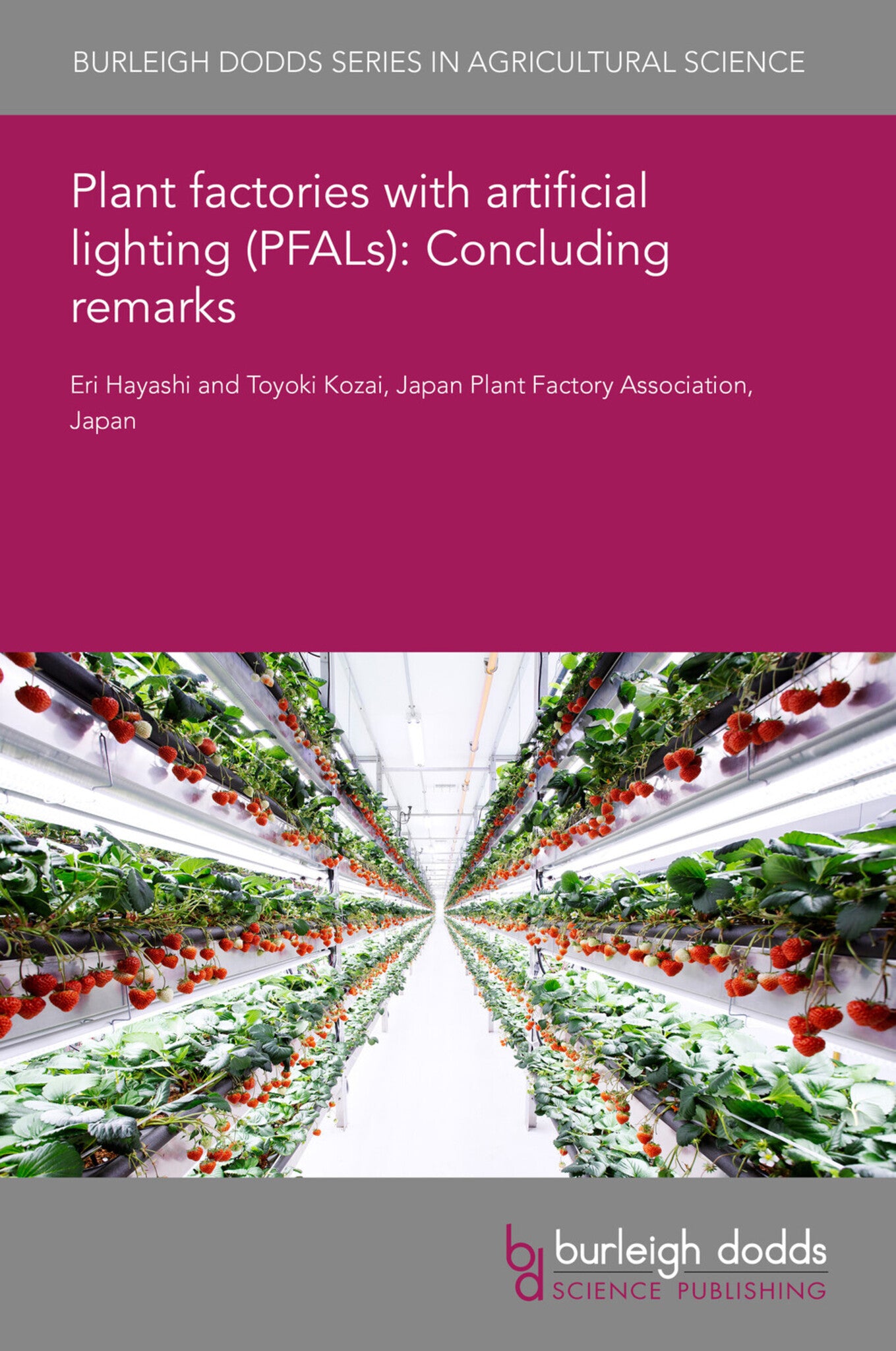We're sorry. An error has occurred
Please cancel or retry.
Plant factories with artificial lighting (PFALs): Concluding remarks

Some error occured while loading the Quick View. Please close the Quick View and try reloading the page.
Couldn't load pickup availability
- Format:
-
14 September 2023

As described throughout this book, plant factories with artificial lighting (PFALs) can contribute to solving global and local issues in: 1) food safety and security, 2) environmental recovery, improvement, and creation, 3) increasing demands for a higher quality of fresh, functional, pesticide-free foods, 4) reducing food mileage and food loss, and 5) quality of life. However, in practice, most existing PFALs have not yet achieved the potential that PFALs have. This chapter provides an overview of the challenges in sustainable PFALs both in food production and in achieving wider social goals.

SCIENCE / Life Sciences / Horticulture, Commercial horticulture, TECHNOLOGY & ENGINEERING / Agriculture / Agronomy / Crop Science, TECHNOLOGY & ENGINEERING / Agriculture / Sustainable Agriculture, Sustainable agriculture, Agricultural science, Agronomy and crop production

- 1 Introduction
- 2 Challenges of sustainable plant factories with artificial lighting
- 3 Opportunities in achieving sustainable well-being societies
- 4 Conclusion
- 5 Where to look for further information



